This is a list of notable events in the history of LGBTQ rights that took place in the year 2004.
The Tennessee Marriage Protection Amendment, also known as Tennessee Amendment 1 of 2006, is a state constitutional amendment banning same-sex unions. The referendum was approved by 81% of voters. It specified that only a marriage between a man and a woman could be legally recognized in the state of Tennessee. This prohibited same-sex marriages within the state, reinforcing previously existing statutes to the same effect until it was overturned by the Obergefell v. Hodges ruling in June 2015.
Same-sex marriage has been legally recognized in Illinois since a law signed by Governor Pat Quinn on November 20, 2013 took effect on June 1, 2014. Same-sex marriage legislation was introduced in successive sessions of the Illinois General Assembly from 2007 to 2013. It passed the Senate in February 2013, but legislators delayed a vote in the House while lobbying for votes until November 5, 2013, when the House passed an amended version of the bill by a narrow margin. The Senate quickly approved the amended bill and Governor Quinn signed it into law on November 20. The law went into effect (statewide) on June 1, 2014, with same-sex couples able to apply for marriage licenses and then marry after the mandatory one-day waiting period. Illinois was the nineteenth U.S. state to legalize same-sex marriage.
Same-sex marriage has been legally recognized in Wyoming since October 21, 2014. The U.S. state of Wyoming had previously prohibited state recognition of same-sex marriages by statute since 1977 and had enacted a more explicit ban in 2003. An attempt to enact legislation recognizing domestic partnerships as an alternative to marriage for same-sex couples failed in 2013. On October 17, 2014, a federal district court found the state's ban on same-sex marriage unconstitutional. Its ruling took effect on October 21 when state officials notified the court that they would not appeal the decision.
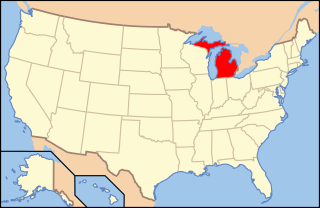
Lesbian, gay, bisexual, and transgender (LGBTQ) people in the U.S. state of Michigan enjoy the same rights as non-LGBTQ people. Michigan in June 2024 was ranked "the most welcoming U.S. state for LGBT individuals". Same-sex sexual activity is legal in Michigan under the U.S. Supreme Court case Lawrence v. Texas, although the state legislature has not repealed its sodomy law. Same-sex marriage was legalised in accordance with 2015's Obergefell v. Hodges decision. Discrimination on the basis of both sexual orientation and gender identity is unlawful since July 2022, was re-affirmed by the Michigan Supreme Court - under and by a 1976 statewide law, that explicitly bans discrimination "on the basis of sex". The Michigan Civil Rights Commission have also ensured that members of the LGBT community are not discriminated against and are protected in the eyes of the law since 2018 and also legally upheld by the Michigan Supreme Court in 2022. In March 2023, a bill passed the Michigan Legislature by a majority vote - to formally codify both "sexual orientation and gender identity" anti-discrimination protections embedded within Michigan legislation. Michigan Governor Gretchen Whitmer signed the bill on March 16, 2023. In 2024, Michigan repealed “the last ban on commercial surrogacy within the US” - for individuals and couples and reformed the parentage laws, that acknowledges same sex couples and their families with children.
Same-sex marriage has been legally recognized in North Carolina since October 10, 2014, when a U.S. District Court judge ruled in General Synod of the United Church of Christ v. Cooper that the state's denial of marriage rights to same-sex couples was unconstitutional. Governor Pat McCrory and Attorney General Roy Cooper had acknowledged that a recent ruling in the Fourth Circuit Court of Appeals and the U.S. Supreme Court's decision not to hear an appeal in that case established the unconstitutionality of North Carolina's ban on same-sex marriage. State legislators sought without success to intervene in lawsuits to defend the state's ban on same-sex marriage. North Carolina was the 28th U.S. state to legalize same-sex marriage.
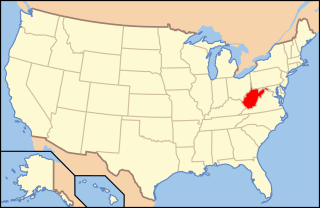
Lesbian, gay, bisexual, transgender, and queer (LGBTQ) people in the U.S. state of West Virginia face legal challenges not faced by non-LGBT persons. Same-sex sexual activity has been legal since 1976, and same-sex marriage has been recognized since October 2014. West Virginia statutes do not address discrimination on account of sexual orientation or gender identity; however, the U.S. Supreme Court's ruling in Bostock v. Clayton County established that employment discrimination against LGBTQ people is illegal.

The Respect for Marriage Act is a landmark United States federal law passed by the 117th United States Congress in 2022 and signed into law by President Joe Biden. It repeals the Defense of Marriage Act (DOMA), requires the U.S. federal government and all U.S. states and territories to recognize the validity of same-sex and interracial civil marriages in the United States, and protects religious liberty. Its first version in 2009 was supported by former Republican U.S. Representative Bob Barr, the original sponsor of DOMA, and former President Bill Clinton, who signed DOMA in 1996. Iterations of the proposal were put forth in the 111th, 112th, 113th, 114th, and 117th Congresses.

The state of Washington is seen as one of the most progressive states in the U.S. in regard to lesbian, gay, bisexual, transgender and queer (LGBTQ) rights; with jurisprudence having evolved significantly since the late 20th century. Same-sex sexual activity was legalized in 1976. LGBTQ people are fully protected from discrimination in the areas of employment, housing and public accommodations; the state enacting comprehensive anti-discrimination legislation regarding sexual orientation and gender identity in 2006. Same-sex marriage has been legal since 2012, and same-sex couples are allowed to adopt. Conversion therapy on minors has also been illegal since 2018.
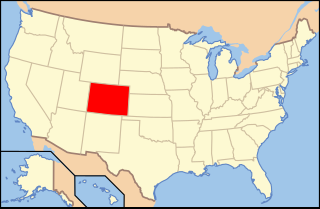
Lesbian, gay, bisexual, transgender, and queer (LGBTQ) people in the U.S. state of Colorado enjoy the same rights as non-LGBTQ people. Same-sex sexual activity has been legal in Colorado since 1972. Same-sex marriage has been recognized since October 2014, and the state enacted civil unions in 2013, which provide some of the rights and benefits of marriage. State law also prohibits discrimination on account of sexual orientation and gender identity in employment, housing and public accommodations and the use of conversion therapy on minors. In July 2020, Colorado became the 11th US state to abolish the gay panic defense.
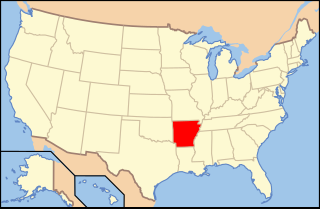
Lesbian, gay, bisexual, transgender, and queer (LGBTQ) people in the U.S. state of Arkansas face legal challenges not experienced by non-LGBTQ residents. Same-sex sexual activity is legal in Arkansas. Same-sex marriage became briefly legal through a court ruling on May 9, 2014, subject to court stays and appeals. In June 2015, the U.S. Supreme Court ruled in Obergefell v. Hodges that laws banning same-sex marriage are unconstitutional, legalizing same-sex marriage in the United States nationwide including in Arkansas. Nonetheless, discrimination on the basis of sexual orientation and gender identity was not banned in Arkansas until the Supreme Court banned it nationwide in Bostock v. Clayton County in 2020.
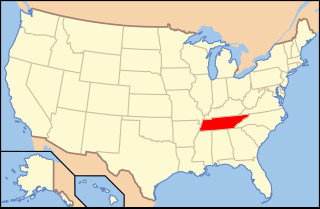
Lesbian, gay, bisexual, transgender, and queer (LGBTQ) people in the U.S. state of Tennessee may experience some legal challenges that non-LGBTQ residents do not. Same-sex sexual activity has been legal in the state since 1996. Marriage licenses have been issued to same-sex couples in Tennessee since the Supreme Court ruling in Obergefell v. Hodges on June 26, 2015.
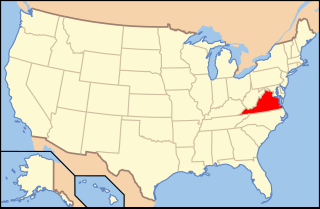
Lesbian, gay, bisexual, transgender, and queer (LGBTQ) people in the U.S. state of Virginia enjoy the same rights as non-LGBTQ people. LGBT rights in the state are a relatively recent occurrence; with most improvements in LGBT rights occurring in the 2000s and 2010s. Same-sex marriage has been legal in Virginia since October 6, 2014, when the U.S. Supreme Court refused to consider an appeal in the case of Bostic v. Rainey. Effective July 1, 2020, there is a state-wide law protecting LGBT persons from discrimination in employment, housing, public accommodations, and credit. The state's hate crime laws also now explicitly include both sexual orientation and gender identity.
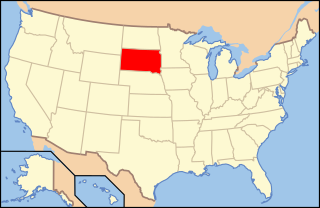
Lesbian, gay, bisexual, transgender, and queer (LGBTQ) people in the U.S. state of South Dakota may face some legal challenges not experienced by non-LGBTQ residents. Same-sex sexual activity is legal in South Dakota, and same-sex marriages have been recognized since June 2015 as a result of Obergefell v. Hodges. State statutes do not address discrimination on account of sexual orientation or gender identity; however, the U.S. Supreme Court's ruling in Bostock v. Clayton County established that employment discrimination against LGBTQ people is illegal under federal law.

Lesbian, gay, bisexual, transgender, and queer (LGBTQ) people in the U.S. state of Kentucky still face some legal challenges not experienced by other people. Same-sex sexual activity in Kentucky has been legally permitted since 1992, although the state legislature has not repealed its sodomy statute for same-sex couples. Same-sex marriage is legal in Kentucky under the U.S. Supreme Court ruling in Obergefell v. Hodges. The decision, which struck down Kentucky's statutory and constitutional bans on same-sex marriages and all other same-sex marriage bans elsewhere in the country, was handed down on June 26, 2015.

John D. Ragan Jr. is an American politician. A Republican, he represents District 33 in the Tennessee House of Representatives.

Lesbian, gay, bisexual, transgender, and queer (LGBTQ) rights in the U.S. state of Alaska have evolved significantly over the years. Since 1980, same-sex sexual conduct has been allowed, and same-sex couples can marry since October 2014. The state offers few legal protections against discrimination on the basis of sexual orientation and gender identity, leaving LGBTQ people vulnerable to discrimination in housing and public accommodations; however, the U.S. Supreme Court's ruling in Bostock v. Clayton County established that employment discrimination against LGBTQ people is illegal under federal law. In addition, four Alaskan cities, Anchorage, Juneau, Sitka and Ketchikan, representing about 46% of the state population, have passed discrimination protections for housing and public accommodations.
The Marriage Equality Act is a 2011 landmark New York State law that made same-sex marriage legal. The bill was introduced in the New York State Assembly by Assemblyman Daniel O'Donnell and in the New York State Senate by Senator Thomas Duane. It was signed into law by Gov. Andrew Cuomo on June 24, 2011 and took effect on July 24, 2011.

Mark Allen Pody is an American politician, elected as a Republican member of the Tennessee Senate from the 17th district, encompassing Cannon County, Clay County, Dekalb County, Macon County, Smith County and Wilson County. Pody resides in Lebanon, Tennessee.
Same-sex marriage has been legal in Tennessee since the U.S. Supreme Court's ruling in Obergefell v. Hodges on June 26, 2015. Governor Bill Haslam quickly announced that the state would abide by the court's decision, and same-sex couples began to marry in Tennessee. Previously, Tennessee had banned same-sex marriage both by statute and its State Constitution.













